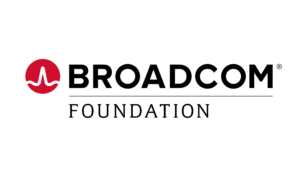The State Science Review Committee (SRC) reviews each project for eligibility. Each project must be cleared by the SRC prior to TXSEF participation. The volunteer-based SRC includes at least one biomedical scientist, one science educator, and one other member. Members of the SRC are knowledgeable about research subject matter and regulations, review required forms for entries, and address any problems before competition. The SRC looks for “red flags” that may require additional forms or project eligibility. The goal of the SRC is to ensure all projects are safe and meet the guidelines set by ISEF. Visit the ISEF Rules Wizard as a first step to help you determine what forms of approvals are necessary.
What are common SRC red flags?
- Human Subject Studies
- If you use human subjects, IRB approval is required.
- Form(s) needed:
- Jr. Division: Texas Safety and Consent Form
- Sr. Division:
- #4: Human Participant Form
- #2: Qualified Scientist Form might be required
- Vertebrate Animal Studies
- If you use vertebrate animals, SRC approval is required.
- Form(s) needed:
- Jr. Division: Texas Safety and Consent Form
- Sr. Division:
- #5A: Vertebrate Animal Form
- #2: Qualified Scientist Form might be required
- Potentially Hazardous Biological Agents Studies
- If you worked with microorganisms and/or human or vertebrate animal tissues, cells, or fluids, then SRC approval is required.
- Certified Laboratories
- Experimentation involving the culturing of potentially hazardous biological agents, even BSL-1 organisms, is prohibited in a home environment. However, specimens may be collected at home as long as they are immediately transported to a laboratory with the BSL containment determined by the affiliated fair SRC. For more information about Potentially Hazardous Biological Agents Rules please review ISEF rules.
- The following types of studies involve BSL-1 organisms and are exempt from prior SRC review and require no additional forms:
- Studies involving baker’s yeast and brewer’s yeast, except in rDNA studies.
- Studies involving Lactobacillus, Bacillus thuringiensis, nitrogen-fixing, oil-eating bacteria, and algae-eating bacteria introduced into their natural environment. (Not exempt if cultured in a petri dish environment.)
- Studies involving water or soil microbes not concentrated in media conducive to their microbial growth.
- Studies of mold growth on food items if the experiment is terminated at the first evidence of mold.
- Studies of slime molds and edible mushrooms.
- Studies involving E. coli k-12 (and other strains of E. coli used solely as a food source for C. elegans) that are performed at school and are not subject to additional rules for recombinant DNA studies or use of antibiotic resistant organisms.
- Checklist and information for SRC Review
- Form(s) needed:
- Jr. Division: Texas Safety and Consent Form
- Sr. Division:
- #6A: Potentially Hazardous Biological Agents Risk Assessment
- #6B: Human and Vertebrate Animal Tissue (if applicable)
- #2: Qualified Scientist Form might be required
- Form(s) needed:








